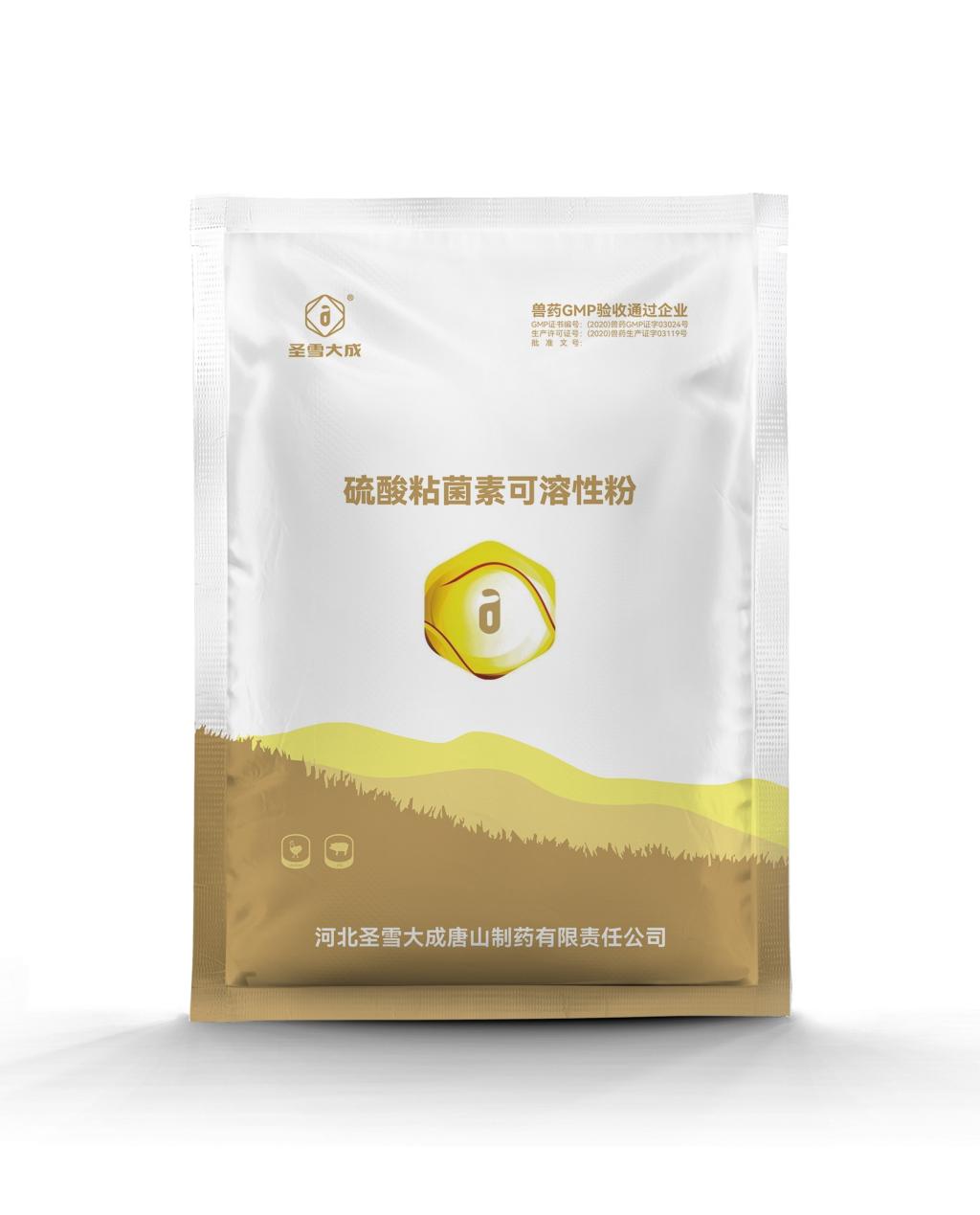Tel:+8618231198596

News
 CONTACT
CONTACT
 CONTACT
CONTACT
- Linkman:Linda Yao
- Tel: +8618231198596
- Email:linda.yao@dcpharma.cn
- Linkman:CHARLES.WANG
- Department:Overseas
- Tel: 0086 0311-85537378 0086 0311-85539701
News
Current Position:
Home >
News
>Integrating Colistin Sulfate Soluble Powder into Sustainable Livestock Practices.
Integrating Colistin Sulfate Soluble Powder into Sustainable Livestock Practices.
TIME:2024-01-23
I. Understanding Colistin Sulfate Soluble Powder:
Colistin Sulfate is an antibiotic belonging to the polymyxin class, primarily effective against Gram-negative bacteria. Administered in the form of a soluble powder, it is commonly used in livestock farming to prevent and treat bacterial infections. Its solubility in water allows for convenient inclusion in animal feed or drinking water, making it a versatile tool in veterinary medicine.
II. Responsible Use and Antibiotic Stewardship:
The responsible use of antibiotics, including Colistin Sulfate, is fundamental to sustainable livestock practices. This section explores the principles of antibiotic stewardship, emphasizing the importance of veterinary oversight, adherence to dosage guidelines, and careful monitoring of antibiotic use on farms. Responsible use helps mitigate the risk of antibiotic resistance, a global concern that threatens both animal and human health.
III. Alternatives and Complementary Approaches:
While Colistin Sulfate is effective in treating bacterial infections, exploring alternatives and complementary approaches is essential for sustainable livestock practices. This section delves into alternative therapies, such as probiotics, prebiotics, and immune-boosting supplements, as well as management practices like improved biosecurity measures and vaccination programs. Integrating these strategies alongside judicious Colistin Sulfate use contributes to a holistic approach to animal health.
IV. Disease Prevention and Biosecurity Measures:
Preventing diseases in livestock is a key component of sustainable farming. Biosecurity measures, such as strict hygiene protocols, controlled access to farms, and proper waste management, play a crucial role in disease prevention. This section explores how the integration of Colistin Sulfate into comprehensive disease prevention strategies can contribute to overall animal health and reduce the need for therapeutic interventions.
V. Zoonotic Concerns and Public Health:
The potential transmission of antibiotic-resistant bacteria from animals to humans raises zoonotic concerns and public health considerations. This section examines the implications of Colistin Sulfate use in livestock for human health, emphasizing the importance of monitoring and managing the risk of transmission. Collaborative efforts between the veterinary and public health sectors are essential to address these concerns responsibly.
VI. Environmental Impact and Resistance Genes:
The environmental impact of antibiotic use in livestock extends beyond the farm. This section explores the potential for antibiotic residues and resistance genes to enter the environment through manure runoff and other pathways. Sustainable practices involve proper waste management, treatment of effluents, and efforts to minimize the environmental impact of Colistin Sulfate use in livestock production.
VII. Veterinary Oversight and Regulation:
Ensuring veterinary oversight and compliance with regulations is critical in the integration of Colistin Sulfate into sustainable livestock practices. This section examines the role of veterinarians in prescribing and monitoring antibiotic use, as well as the importance of adherence to regulatory frameworks. A harmonized approach to regulations facilitates responsible antibiotic use and promotes the welfare of both animals and consumers.
VIII. Research and Innovation:
Advancements in research and innovation are integral to shaping the future of sustainable livestock practices. This section discusses ongoing research efforts to develop alternative therapies, optimize antibiotic formulations, and explore new technologies that can enhance animal health without compromising the environment or human health. Collaboration between researchers, veterinarians, and industry stakeholders is critical in driving innovation in the field.
IX. Farm Animal Welfare Considerations:
Animal welfare is a fundamental aspect of sustainable livestock practices. This section explores the impact of diseases on animal welfare and the role of Colistin Sulfate in alleviating suffering when infections occur. Balancing the need for treatment with a commitment to animal welfare requires a holistic approach that considers both the health and well-being of animals.
X. Consumer Awareness and Ethical Consumption:
Consumer awareness and ethical consumption are influential factors in shaping sustainable livestock practices. This section explores the role of transparent labeling, certification programs, and consumer education in promoting responsible antibiotic use in livestock production. Ethical considerations surrounding the treatment of animals and the responsible use of Colistin Sulfate contribute to informed consumer choices.
XI. Collaborative Initiatives and Industry Adoption:
The successful integration of Colistin Sulfate into sustainable livestock practices requires collaborative initiatives. This involves partnerships between industry stakeholders, regulatory bodies, and research institutions to establish best practices, standards, and guidelines. Industry adoption of responsible antibiotic use practices, including Colistin Sulfate, is essential for realizing sustainable livestock farming.
XII. Conclusion:
In conclusion, the integration of Colistin Sulfate into sustainable livestock practices is a multifaceted endeavor that requires a balanced and responsible approach. Responsible use, alternatives, biosecurity measures, and considerations for environmental and public health collectively contribute to a holistic framework for sustainable farming. As the global demand for animal products continues to rise, the implementation of these practices is crucial for ensuring the long-term health and well-being of livestock, mitigating the risk of antibiotic resistance, and fostering a sustainable and ethical food production system.
- Tel:+8618231198596
- Whatsapp:18231198596
- Chat With Skype







